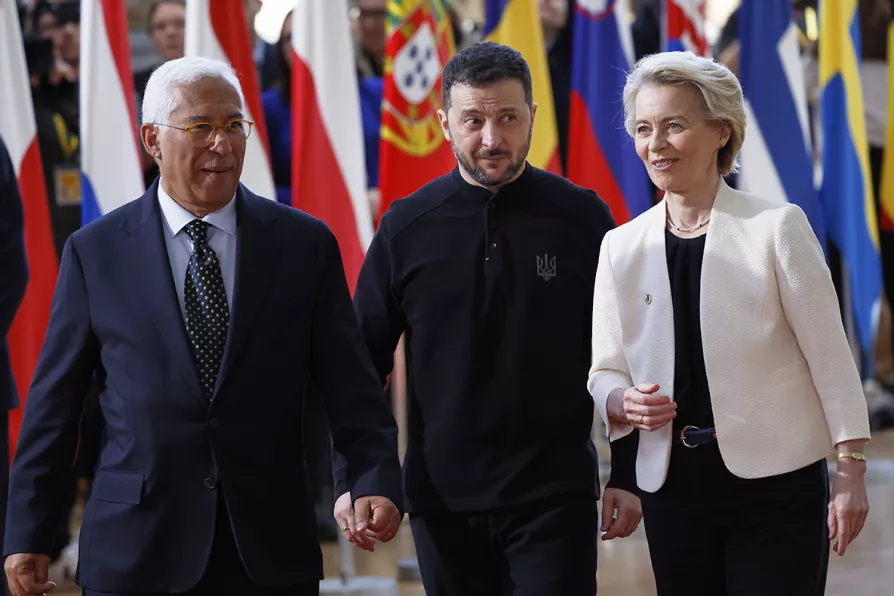John Wojcik pays tribute to a black US activist who spent six decades at the forefront of struggles for voting rights, economic justice and peace – reshaping US politics and inspiring movements worldwide

 From left, European Council President Antonio Costa, Ukraine's President Volodymyr Zelensky and European Commission President Ursula von der Leyen arrive for an EU Summit at the European Council building in Brussels, March 6, 2025
From left, European Council President Antonio Costa, Ukraine's President Volodymyr Zelensky and European Commission President Ursula von der Leyen arrive for an EU Summit at the European Council building in Brussels, March 6, 2025
EUROPEAN leaders want to drastically increase defence spending and prepare their economies for war. There are plans to introduce (for now) voluntary conscription and to install a nuclear shield. Several countries are willing to send troops to Russia’s neighbouring countries, including Ukraine.
Boris Pistorius, the former German minister of defence, has declared that his country will be “ready for war” (Kriegstuchtigkeit) by 2029. The hatchet has been dug up.
“We have been betrayed by Trump and are threatened by Putin; therefore, we must increase our military efforts and prepare for war.” This is the narrative that the European elite presents to us and that is widely spread in the mainstream media.

Western nations’ increasingly aggressive stance is not prompted by any increase in security threats against these countries — rather, it is caused by a desire to bring about regime changes against governments that pose a threat to the hegemony of imperialism, writes PRABHAT PATNAIK

In the conclusion of his two-part article, PETER MERTENS reveals that while global military spending hits $2.7 trillion with European arms company profits soaring 1,000%, €1 invested in hospitals creates 2.5 times more jobs than weapons

In the first half of a two-part article, PETER MERTENS looks at how Nato’s €800 billion ‘Readiness 2030’ plan serves Washington’s pivot to the Pacific, forcing Europeans to dismantle social security and slash pensions to fund it

Speaking to a CND meeting in Cambridge this week, SIMON BRIGNELL traced how the alliance’s anti-communist machinery broke unions, diverted vital funds from public services, and turned workers into cannon fodder for profit









